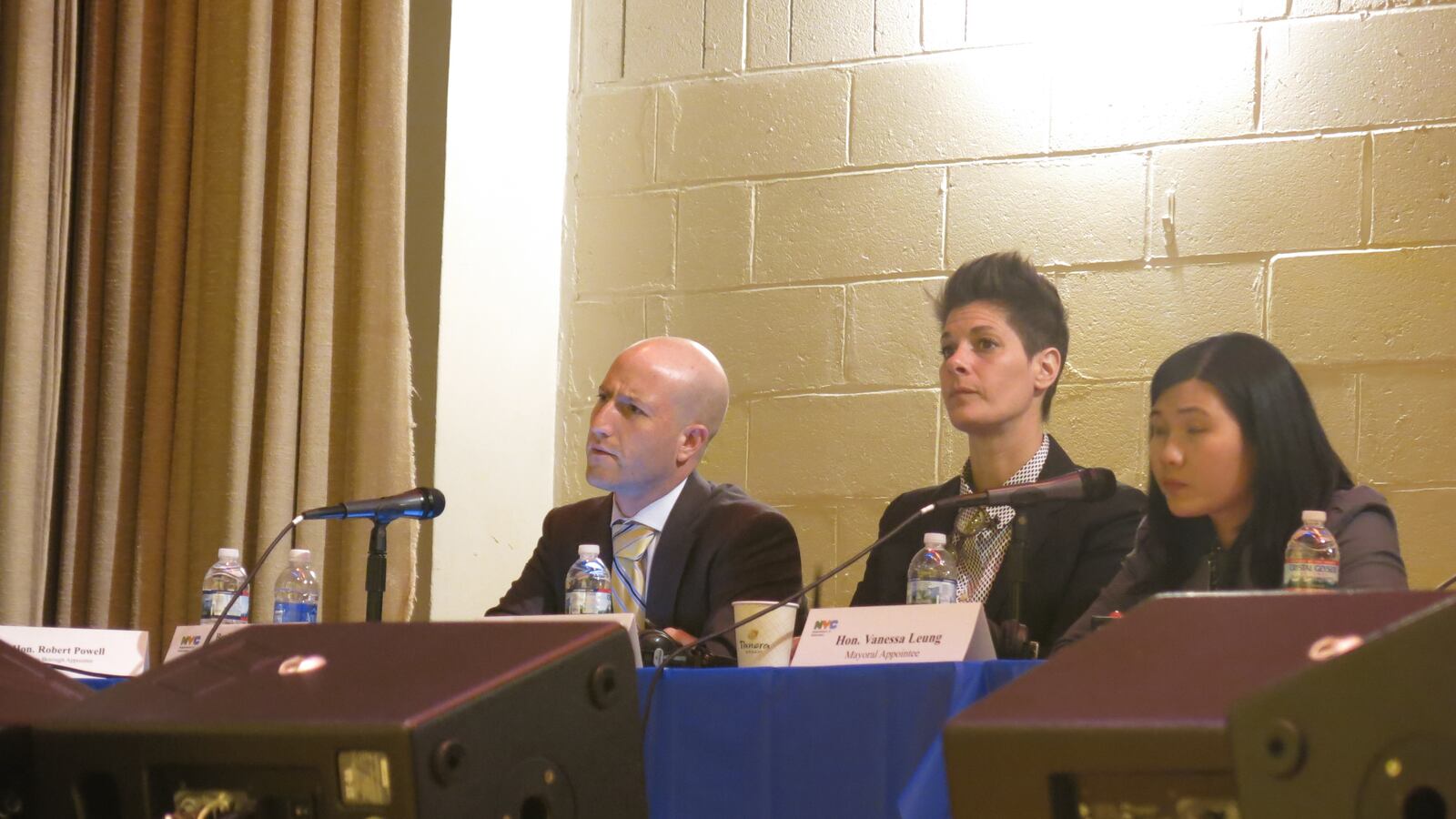A surprise no vote by the city’s education policy-making panel on Wednesday night highlights the fine line that Mayor Bill de Blasio must walk while lobbying lawmakers to keep control of the school system.
Roberto Soto-Carrión, a consistent supporter of Mayor Bill de Blasio’s proposals since the mayor appointed him to the panel 14 months ago, cast the decisive vote against the city’s plan for where to open Success Academy Midwood, a charter school, in 2016.
The vote surprised other panel members and even seemed to catch the de Blasio administration off guard. It marked only the second time in the 13-year history of mayoral control that the panel, whose 13 members include eight chosen by the mayor, rejected a city proposal. (The first rejection happened last year, just months into de Blasio’s tenure, and was reversed a month later.)
“I was a little shocked,” said Isaac Carmignani, a mayoral appointee who voted for the proposal.
The six yeas for the proposal were Staten Island Borough President representative Kamillah Payne-Hanks and mayoral appointees Vanessa Leung, Ben Shuldiner, Miguelina Zorilla-Aristy, Lori Podvesker and Carmignani. The four nays were Soto-Carrión, Robert Powell, the Bronx representative, Laura Zingmond, the Manhattan representative, and Elzora Cleveland, a mayoral appointee; Fred Baptiste, the Brooklyn representative. Two member, Norm Fruchter and Queens’ Deborah Dillingham were not there.
The rejection comes at a time when legislators are scrutinizing de Blasio’s control of the school system, and it suggests the delicacy of the mayor’s position in lobbying to keep control while also distancing himself from criticism leveled at his predecessor, Michael Bloomberg.
The law authorizing mayoral control expires at the end of June, and state lawmakers are considering whether to renew it for as many as three years, as de Blasio would like, or as little as one year.
On the one hand, the no vote undermines de Blasio’s argument — which he has been making strenuously to legislators — that mayoral control allows city policies to be made quickly and efficiently.
Success CEO Eva Moskowitz took aim at that claim in her reaction to the vote. “If Mayor de Blasio wants mayoral control, he should show he’s willing to use it,” she said in a statement. “If he won’t use it, then someone else needs to take control of the city’s schools.”
On the other hand, the no vote offers de Blasio ammunition to counter criticism that mayoral control means there are no checks on the mayor’s power. While that has not been a substantial theme of school governance talks in Albany this spring, it was a major line of attack on how Bloomberg ran the school system the last time mayoral control was renewed, in 2009. Bloomberg famously fired three panel members in 2004 the night before they planned to vote against a proposal to impose stricter promotion standards based on state test scores.
“I don’t think this is an indication that the mayor has no control,” said Laura Zingmond, a panel member appointed by the Manhattan borough president who also voted against Success co-location on Wednesday. “You don’t want a tyrant.”
A spokeswoman for the Department of Education said the city was “disappointed in the vote” but emphasized the value of listening to the public on education issues, something de Blasio promised in his campaign to do. The Success co-location proposal had received sharp criticism from representatives of the middle school that had been slated to share space.
“Mayor de Blasio and Chancellor [Carmen] Fariña are committed to meaningful dialogue with all stakeholders when making important decisions that impact the education of our city’s students and lead to improved student outcomes,” the spokeswoman, Devora Kaye, said in a statement. She pointed out that two other space plans involving Success Academy were approved, as was a co-location involving a new Icahn charter school in the Bronx.
How the panel’s power dynamics might affect the legislature’s mayoral control negotiations is not clear. The legislative session officially ends next Wednesday, but officials in Albany said they’re likely to stay longer because talks between the state’s leaders have moved slowly.
At least one lawmaker praised the panel’s vote. Rodneyse Bichotte, an assemblywoman whose district includes Andries Hudde Junior High School, where Success Academy Midwood had been proposed to open, said she discussed the vote with lawmakers on Thursday.
Bichotte, a Hudde graduate, said she was “partially surprised” to hear that the proposal was rejected but said she agreed with the decision. “It was a great thing,” she said.
One remaining mystery is what caused Soto-Carrión, the son of Administration for Children’s Services Commissioner Gladys Carrión who has been a staunch supporter of city proposals, to turn against the proposal.
He had not previously expressed concerns about the proposal during briefings with city officials, other members said. At the meeting, Soto-Carrión, who did not respond emails seeking comment, said he was voting against it because had safety concerns about the co-location.
Elzora Cleveland, the other mayoral appointee who voted against the proposal, said she had not spoken to Soto-Carrión since the vote but thought he might have changed his mind once he learned more about the proposal during the meeting.
“In many instances hearing what’s presented to us at that time can change someone’s opinion,” Cleveland said. “It really can.”


